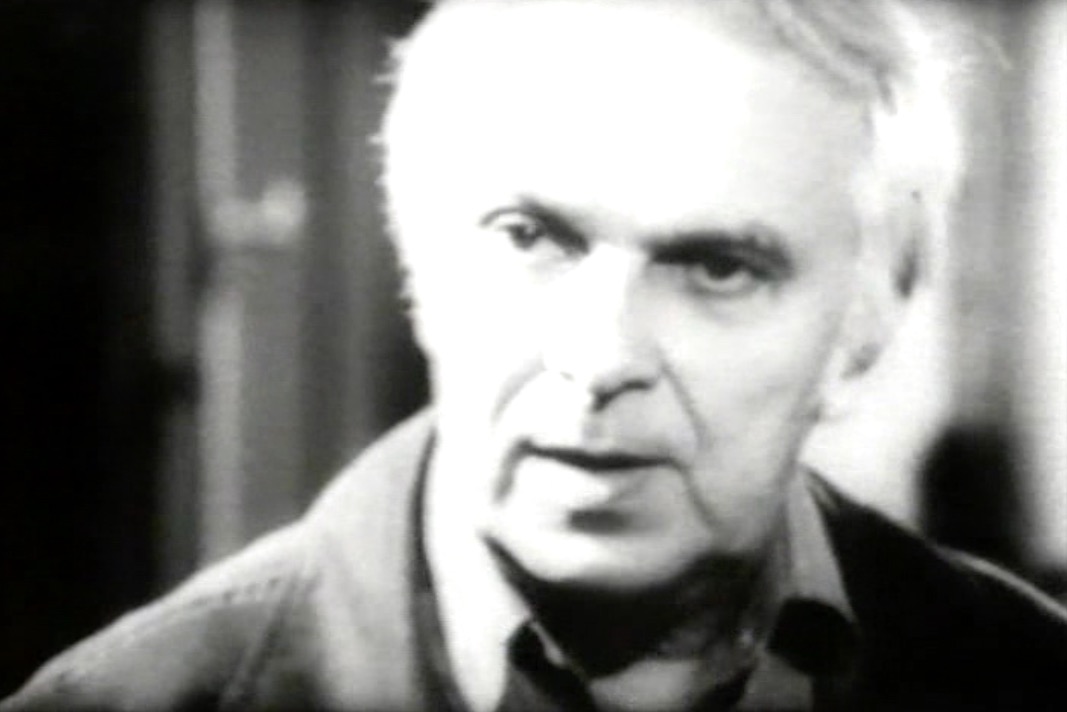Happy Birthday Santiago Alvarez
Born 18 March 1919, Havana
Died 20 May 1998, Havana
Santiago Alvarez was not speaking metaphorically when he said that the Revolution made him a filmmaker. Before the creation of Cuba’s revolutionary film institute in 1959 filmmaking in Cuba was sparse, and at the age of 40 Alvarez had never made a film, yet he quickly became the boldest of innovators in a decade notable for Cuba’s remarkable contribution to the aesthetic renewal of the medium. Put in charge of the weekly Noticiero (Newsreel), Alvarez reinvented the genre. Instead of an arbitrary sequence of disconnected items, in which the way the world is perceived is hindered by the fragmentation of the way it’s presented, he joined things up into a political argument, or turned them into single topic documentaries. He went on to transform every documentary genre he laid hands upon, from the compilation film to the travelogue, in an irrepressible frenzy of filmic bricolage licensed by that supreme act of bricolage, the Cuban Revolution. He excelled in the montage of found footage. Employing every kind of visual imagery, from newsreel to stills, movie clips to magazine cuttings, combined with animated texts and emblematic musicalisation, Alvarez amalgamated revolutionary politics and artistic kleptomania to reinvent Soviet montage in a Caribbean setting.
His outlook was thoroughly internationalist. Found footage enabled him to make the six-minute Now (1965), a celebration of the civil rights movement in the USA and the first of his films to bring him to international attention, a music video avant la lettre of a banned protest song by Lena Horne. Two years later he was in North Vietnam, filming Hanoi martes 13 (1967) a subtle and poetic anti-reportage about daily life under bombardment. Two years after that he commemorates the life of Ho Chi Minh in the lyrical 79 primaveras (79 Springs), in which the funeral is set to the music of Iron Butterfly and frames of film burst into flame on the screen. In between came LBJ (1968) a stunning found footage satire on political assassination in the USA in the 1960s. Less well known abroad are films addressed to domestic questions, like Despegue a las 18:00 (Take-off at 18:00, 1969), a striking work of agit-prop deploying a panoply of filmic devices, which announces itself in the opening captions as ‘a film that is didactic, informative, political and pamphleteering, about a people in revolution, anxious and desperate to find a way out of the agonising heritage of underdevelopment’. Then he proceeded to longer films, including three which chronicle foreign trips made by Fidel Castro in the 70s. These are a lot more interesting than they sound, partly because of Alvarez’s quirky and loose-jointed style, but above all in De America soy hijo (Born of the Americas, 1972), the film of Fidel’s visit to Allende’s Chile, because they riff on his speeches to explain the Chilean situation.
Audiences flocked to see this energetic form of reportage and enjoyed his satire, usually directed against US imperialism, with its ironic wit. Research by the Cuban film institute (ICAIC) found that people sometimes went to the movies to see the latest Alvarez and whatever feature happened to be on with it – an inversion of normal cinema-going behaviour. The playful way in which he replaced conventional narration with animated words on the screen celebrated the joy of reading discovered by so many Cubans through the literacy campaign of 1961. But there is no single stylistic key to Alvarez’s work. Some of his films are journalistic, others seem to be conceived from the ground up, always quickly made and sometimes double quick, like Hasta la victoria siempre, made in 48 hours in 1967 in response to the traumatic news of the death of Che Guevara in Bolivia. They are all, of course, propaganda, that’s to say, politically partisan. Alvarez was a faithful follower of Fidel, and will later be called his poet laureate. But propaganda in Alvarez’s hands transcends itself and becomes poetry. There are very few filmmakers to match him.
There’s a useful playlist of (some of) his films here, and below is a clip from a Noticiero dating from 1979 (directed by Daniel Díaz Torres) in which he recalls the early days of the film institute.
[vimeo]https://vimeo.com/324933480[/vimeo]

